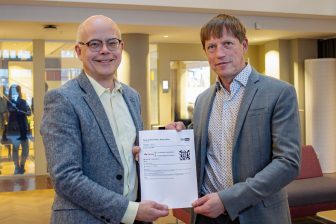
Softil supports Siemens in developing LTE-R solutions
Siemens Mobility has chosen the BEEHD client framework to develop the next generation of the Long Term Evolution-Railway (LTE-R) networks. This technology will be also used for the development of the new mission-critical push-to-talk (MCPTT) systems to be installed in the metro trains, trams and buses. The BEEHD solution was developed by the Israeli-based company Softil.
Siemens Mobility will develop the next generation of communications solutions for the further implementation of the European Train Control System (ETCS) and Automatic Train Operation (ATO). They will also support the replacement of GSM-R technology with the Future Railway Mobile Communications Systems (FRMCS). This project was launched by the International Union of Railways (UIC) in 2014. FRMCS should be available in 2022 to provide tests and approvals. The GSM-R system is scheduled to be phased out in 2030.
“The rail industry is at the forefront of the mission-critical communication revolution and GSM-R based systems have already been replaced by LTE-R solutions in the Asia Pacific (APAC) and the trend is expected to widen across other markets in 2019/20. With Softil’s BEEHD client framework at the heart of Siemens Mobility’s next-generation LTE-R offerings, the rail industry will have a range of supremely reliable solutions packed with rich communication features,” said Pierre Hagendorf, CEO of Softil.
BEEHD framework
The Softil BEEHD solution is a cross-platform framework designed for chipset vendors, device manufacturers, system integrators, application developers and service providers looking to accelerate the development of IP-based voice and video over LTE (VoLTE, ViLTE and MCPTT/MCX) solutions. It is compatible with LTE-R technology. The latter makes possible live tracking of a train and transmitting railroad information to engine drivers, and also enables multimedia-based group calling and SMS services on top of voice call services. The Softil BEEHD framework will allow Siemens Mobility’s solutions to deliver stable voice as well as data communications on trains running at speeds in excess of 400 kilometres per hour.
“The rail industry is facing unprecedented challenges in handling increasing numbers of passengers and freight traffic loads. After careful analysis of market options, Siemens Mobility chose Softil’s BEEHD client technology as the outstanding Software Development Kit for our developers to build best-of-breed LTE-R communications solutions for the rail industry in the shortest timeframe,” noted Russell Clarke, General Manager for Mobile Communications at Siemens Mobility.



